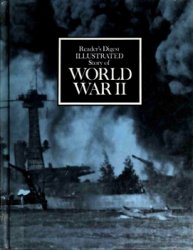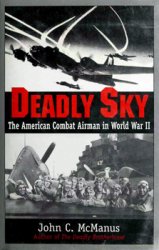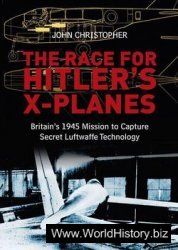Christopher Andrew is Professor of Modem and Contemporary History at Cambridge University. He has published Secret Service: The Making of the British Intelligence Community; KGB: The Inside Story of Its Foreign Operations from Lenin to Gorbachev (with Oleg Gordievsky), and The Mitrokhin Archive (with Vasili Mitrokhin).
PRiEDEiRic Bozo is Professor of Contemporary History at the Sorbonne (University of Paris III). He has published Two Strategies for Europe: De Gaulle, the United States, and the Atlantic Alliance, and Mitterrand, la fin de la guerre froide et l’unification allemande: De Yalta a Maastricht.
William Burr, a senior analyst at the National Security Archive, George Washington University, directs the archive's project on Nuclear History Documentation. He edited The Kissinger Transcripts (1998) and has published on US nuclear history in scholarly journals.
Richard N. Cooper is Maurits C. Boas Professor of International Economics at Harvard University. He has served in the US government, including as chairman of the National Intelligence Council (1995-97). His most recent books include Boom, Crisis, and Adjustment and Environment and Resource Policies for the World Economy.
Frank Costigliola is Professor of History at the University of Connecticut. A former Guggenheim Fellow, he is the author of Awkward Dominion: American Political, Economic, and Cultural Relations with Europe, 1919-33 and The Cold Alliance: France and the United States Since World War II,
Nicholas J. Cull is Professor of Public Diplomacy at the Annenberg School for Communication, University of Southern California, and the current president of the International Association for Media and History. He is author of The United States and the Cold War: American Propaganda and Public Diplomacy, 1945-1989.
Ennio Di Nolfo is Professor Emeritus of History of International Relations at the University of Florence. He has published Dagli Imperi militari agli imperi tecnologici: La politica internazionale dal XX secolo a oggi and Storia delle relazioni internazionali 1919-1999.
John Lewis Gaddis is Robert A. Lovett Professor of History at Yale University. He is the author of Strategies of Containment: A Critical Appraisal of Postwar American National Security, The Long Peace: Inquiries into the History of the Cold War and We Now Know: Rethinking Cold War History.
Francis J. Gavin is the Tom Slick Professor for International Affairs at the LBJ School of Public Affairs and the Director of Studies at the Robert S. Strauss Center for International Security and Law at the University of Texas. He is the author of Gold, Dollars, and Power: The Politics of International Monetary Relations, 1958-1971.
Piero Gleijeses is a professor of American foreign policy at Johns Hopkins University (SAIS). He is the author of Conflicting Missions: Havana, Washington, and Africa, 1959-1976 and Shattered Hope: The Guatemalan Revolution and the United States, 1944-1954.
Jussi HanhimJaki is Professor of International History and Politics at the Graduate Institute of International and Development Studies in Geneva, Switzerland. He is the author of The Flawed Architect: Henry Kissinger and American Foreign Policy and The United Nations: A Very Short Introduction.
James G. Hershberg is Associate Professor of History and International Affairs at George Washington University and Director Emeritus of the Cold War International History Project. He is author of James B. Conant: Harvard to Hiroshima and the Making of the Nuclear Age.
Robert Jervis is Adlai E. Stevenson Professor of International Politics at Columbia University. He is the author of American Foreign Policy in a New Era and The Politics and Psychology ofIntelligence and Intelligence Failures.
Anthony Kemp-Welch is Senior Lecturer at the School of History, University of East Anglia. He is author of Poland under Communism: A Cold War History and Stalin and the Literary Intelligentsia, 1928-39.
Michael E. Latham is Associate Professor of History at Fordham University. He is the author of Modernization as Ideology: American Social Science and “Nation Building” in the Kennedy Era, and a co-editor of Staging Growth: Modernization, Development, and the Global Cold War.
Melvyn P. Leffler is Edward Stettinius Professor of American History at the University of Virginia. He is the author of A Preponderance of Power: National Security, the Truman Administration, and the Cold War and For the Soul of Mankind: The United States, the Soviet Union, and the Cold War.
Douglas Little is Professor of History at Clark University in Worcester, Massachusetts. He is the author of Malevolent Neutrality: The United States, Great Britain, and the Origins ofthe Spanish Civil War and American Orientalism: The United States and the Middle East since 1945.
Fredrik Logevall is Professor of History at Cornell University. His publications include Choosing War: The Lost Chance for Peace and the Escalation of War in Vietnam, The Origins of the Vietnam War, and Terrorism and 9/11: A Reader.
Wilfried Loth is Professor of Modern and Contemporary History at the University of Duisburg-Essen. He is author of The Division of the World 1941-1955 and Overcoming the Cold War. A History of Detente, 1951-1991.
N. Piers Ludlow is Reader in International History at the London School of Economics and Political Science. He is the author of The European Community and the Crises of the 1960s: Negotiating the Gaullist Challenge and the editor of European Integration and the Cold War: Ostpolitik/Westpolitik, 1965-73.
Sergey Radchenko is Lecturer in History at the University of Nottingham, Ningbo. He is the author of The Atomic Bomb and the Origins of the Cold War (with Campbell Craig) and Two Suns in the Heavens: The Sino-Soviet Struggle for Supremacy.
David Alan Rosenberg is Professorial Lecturer in History at Temple University. He has published widely on issues of strategic and nuclear planning.
Svetlana Savranskaya is a research fellow at the National Security Archive in Washington, DC, where she directs cooperative projects with Russian archives and institutes and edits the Russian and East Bloc Archival Documents Database.
Robert D. Schulzinger is Professor of History and Director of the International Affairs Program at the University of Colorado, Boulder. He has publised Henry Kissinger: Doctor of Diplomacy, Present Tense: The United States since 1945 and A Time for Peace: The Legacy ofthe Vietnam War.
Jeremi Suri is Professor of History at the University of Wisconsin. He is the author of Power and Protest: Global Revolution and the Rise of Detente and Henry Kissinger and the American Century.
William Taubman is Bertrand Snell Professor of Political Science at Amherst College. He is the author of Khrushchev: The Man and His Era and Stalin’s American Policy: From Entente to Detente to Cold War.
Marc Trachtenberg, a historian by training, is a professor of political science at UCLA. He is the author of History and Strategy and A Constructed Peace: The Making ofthe European Settlement, 1945-1963.
Odd Arne Westad is Professor of International History at the London School of Economics and Political Science. Among his publications are Decisive Encounters: The Chinese Civil War, 1946-1950 and The Global Cold War: Third World Interventions and the Making of Our Times.




 World History
World History









